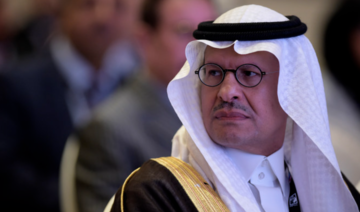RIYADH: Saudi Arabia is at the forefront of countries ready to embrace cutting-edge manufacturing technologies, the Kingdom’s minister of industry and mineral resources said on Monday.
Bandar Alkhorayef affirmed his outlook during his participation in the “RAD” Entrepreneurship Forum in the Eastern Province, noting that investment opportunities in the industrial sector have undergone radical changes, reported the Saudi Press Agency.
He highlighted that the Kingdom is among the most prepared countries to embrace modern manufacturing technologies, attributing this readiness to the nation’s strong commitment reflected in the objectives of Vision 2030.
The absence of competition between technology and Saudi employees, coupled with a youthful population inclined toward modern innovations, positions the Kingdom favorably for accelerating the industrial sector’s transformation, as SPA reported.
Alkhorayef explained that the national industrial strategy encompasses over 60 enabling initiatives.
Half of these projects are directed toward entrepreneurship and small and medium-sized enterprises, with ongoing efforts to create spaces for businessowners in industrial cities.
He highlighted successful initiatives launched by the Ministry of Industry and Mineral Resources, such as the “Industry Hackathon” organized by the Saudi Industrial Development Fund and “Alf Mile” introduced by the National Industrial Development and Logistics Program.
Alkhorayef underscored that expediting exploration is a top priority for the ministry in the mining sector. This includes both state-led accelerated exploration and efforts by private companies. Accelerated venturing, he emphasized, is the nerve center around which the mining sector revolves.
The minister further emphasized the significant role of the “Made in Saudi” program in enhancing the identity of regional products and encouraging their acquisition, as well as making foreign markets accessible to local exporters.
He noted that the initiative has recently started leveraging sub-brands such as “Made in Makkah” and “Made in Madinah” and introduced the sub-brand “Saudi Technology.”
Alkhorayef emphasized the program’s commitment to selecting brands that meet the required standards of quality and efficiency.
The Entrepreneurship Forum and Exhibition 2023 connects the economic community, corporations, and entrepreneurs with innovative projects. The focus is on promoting youth products and services, educating young entrepreneurs, and showcasing successful experiences.






















